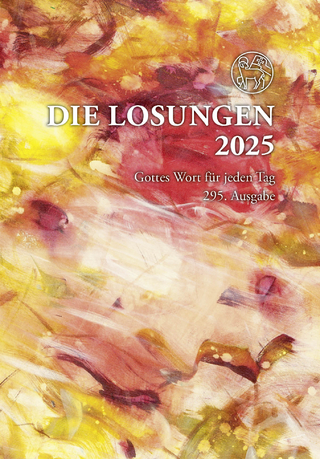
Shakespeare's Common Prayers
The Book of Common Prayer and the Elizabethan Age
Seiten
2012
Oxford University Press Inc (Verlag)
978-0-19-983856-1 (ISBN)
Oxford University Press Inc (Verlag)
978-0-19-983856-1 (ISBN)
A fascinating and highly original exploration of Shakespeare's great overlooked source, the Book of Common Prayer
Shakespeare's Common Prayers revolves around Shakespeare's great overlooked source: the Book of Common Prayer, first published in 1549, whose appearance established Protestantism as the compulsory belief of the day. Written in a simple vernacular and incorporating familiar Catholic rituals, the book laid out the proper performance of church rites and services. And yet it was also highly disputed and constantly in flux; as Daniel Swift shows, the prayer book's history is one of passionately contested revision and of manic sensitivity to a verb or a turn of phrase. In the book's ambiguities and fierce contestations, Swift argues, William Shakespeare found the ready elements of drama: dispute over words and their practical consequences, hope for sanctification tempered by fear of simple meaninglessness, and the demand for improvised performance as a compensation for the failure of language to do what it appears to promise.
Swift offers a study of Shakespeare at work: of his imagination at play upon a set of literary materials from which he both borrowed and learned, of his manipulation of the explosive chemistry of word and action that comprised early modern liturgy. Swift argues that the Book of Common Prayer mediates between the secular and the devotional, producing a tension that helps make Shakespeare's plays so powerful and exceptional. Tracing the prayer book's lines and motions through As You Like It, Hamlet, Twelfth Night, Measure for Measure, Othello, and particularly Macbeth, Swift redirects scholarly attention to the religious heart of Shakespeare's work and time.
Shakespeare's Common Prayers revolves around Shakespeare's great overlooked source: the Book of Common Prayer, first published in 1549, whose appearance established Protestantism as the compulsory belief of the day. Written in a simple vernacular and incorporating familiar Catholic rituals, the book laid out the proper performance of church rites and services. And yet it was also highly disputed and constantly in flux; as Daniel Swift shows, the prayer book's history is one of passionately contested revision and of manic sensitivity to a verb or a turn of phrase. In the book's ambiguities and fierce contestations, Swift argues, William Shakespeare found the ready elements of drama: dispute over words and their practical consequences, hope for sanctification tempered by fear of simple meaninglessness, and the demand for improvised performance as a compensation for the failure of language to do what it appears to promise.
Swift offers a study of Shakespeare at work: of his imagination at play upon a set of literary materials from which he both borrowed and learned, of his manipulation of the explosive chemistry of word and action that comprised early modern liturgy. Swift argues that the Book of Common Prayer mediates between the secular and the devotional, producing a tension that helps make Shakespeare's plays so powerful and exceptional. Tracing the prayer book's lines and motions through As You Like It, Hamlet, Twelfth Night, Measure for Measure, Othello, and particularly Macbeth, Swift redirects scholarly attention to the religious heart of Shakespeare's work and time.
Daniel Swift is Senior Lecturer for English at the New College of the Humanities. His first book, Bomber County: The Poetry of a Lost Pilot's War was long-listed for the Guardian First Book Award and the Samuel Johnson Prize.
Prologue: A Revel with the Puritans ; Chapter 1: The only book in the world ; Part 1: The form of solemnization of Matrimony ; Chapter 2: For better, for worse ; Chapter 3: Till death us depart ; Part 2: The order for the administration of the Lord's Supper, or holy Communion ; Chapter 4: The Quick and the Dead ; Chapter 5: A gap in our great feast ; Part 3: The ministration of Baptism to be used in the Church ; Chapter 6: Graceless Sacraments ; Chapter 7: Above all Humane Power ; Epilogue: Five or Six Words
| Erscheint lt. Verlag | 22.11.2012 |
|---|---|
| Verlagsort | New York |
| Sprache | englisch |
| Maße | 213 x 145 mm |
| Gewicht | 431 g |
| Themenwelt | Literatur ► Lyrik / Dramatik ► Dramatik / Theater |
| Religion / Theologie ► Christentum ► Gebete / Lieder / Meditationen | |
| Religion / Theologie ► Christentum ► Kirchengeschichte | |
| Geisteswissenschaften ► Sprach- / Literaturwissenschaft ► Anglistik / Amerikanistik | |
| Geisteswissenschaften ► Sprach- / Literaturwissenschaft ► Literaturgeschichte | |
| Geisteswissenschaften ► Sprach- / Literaturwissenschaft ► Literaturwissenschaft | |
| ISBN-10 | 0-19-983856-9 / 0199838569 |
| ISBN-13 | 978-0-19-983856-1 / 9780199838561 |
| Zustand | Neuware |
| Haben Sie eine Frage zum Produkt? |
Mehr entdecken
aus dem Bereich
aus dem Bereich
Grossdruck Softcover
Buch | Softcover (2024)
Reinhardt, Friedrich (Verlag)
CHF 14,50
Grossdruck Hardcover
Buch | Hardcover (2024)
Reinhardt, Friedrich (Verlag)
CHF 13,50
Geschenkausgabe. Normalschrift
Buch (2024)
Reinhardt, Friedrich (Verlag)
CHF 9,50


